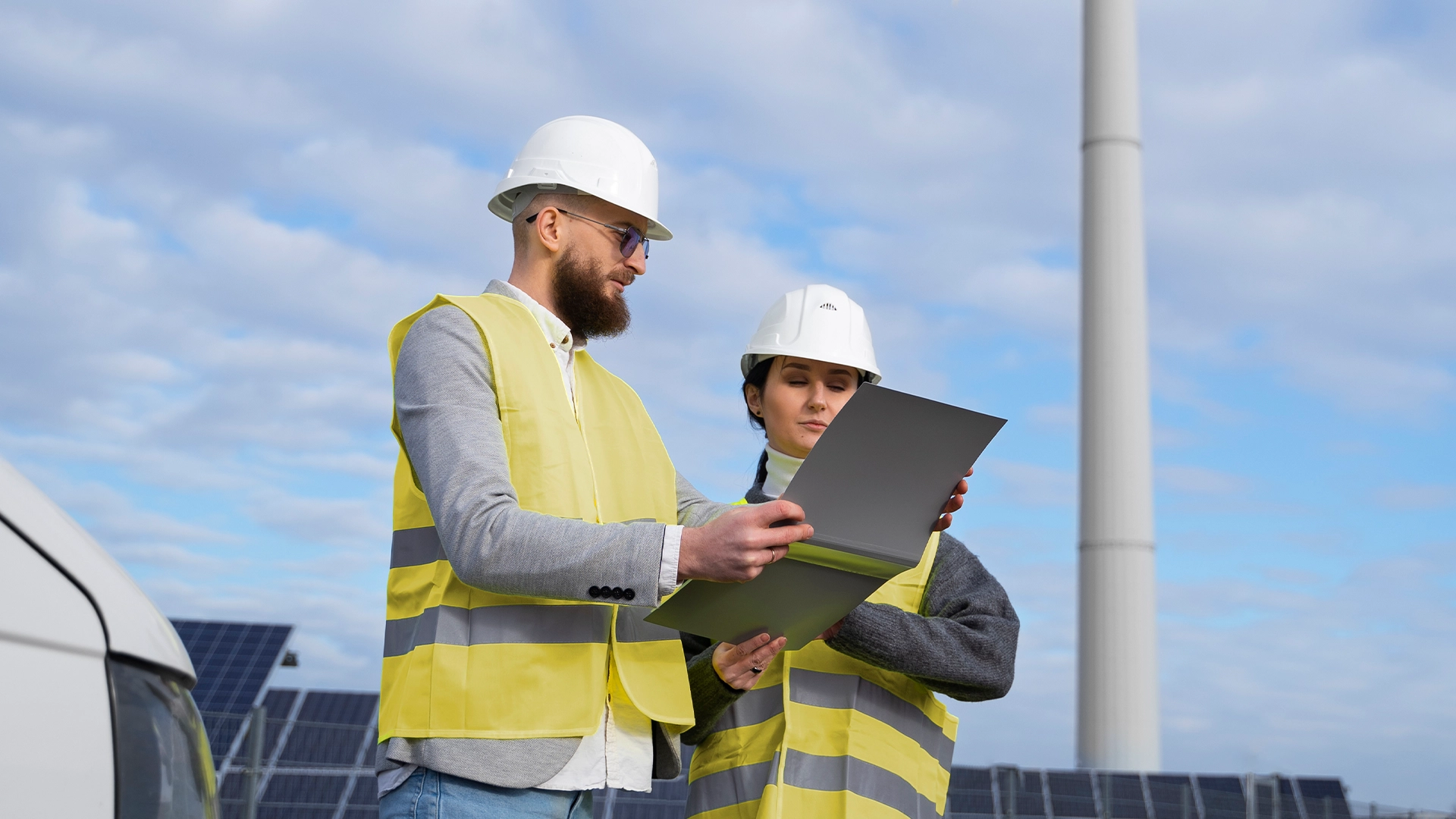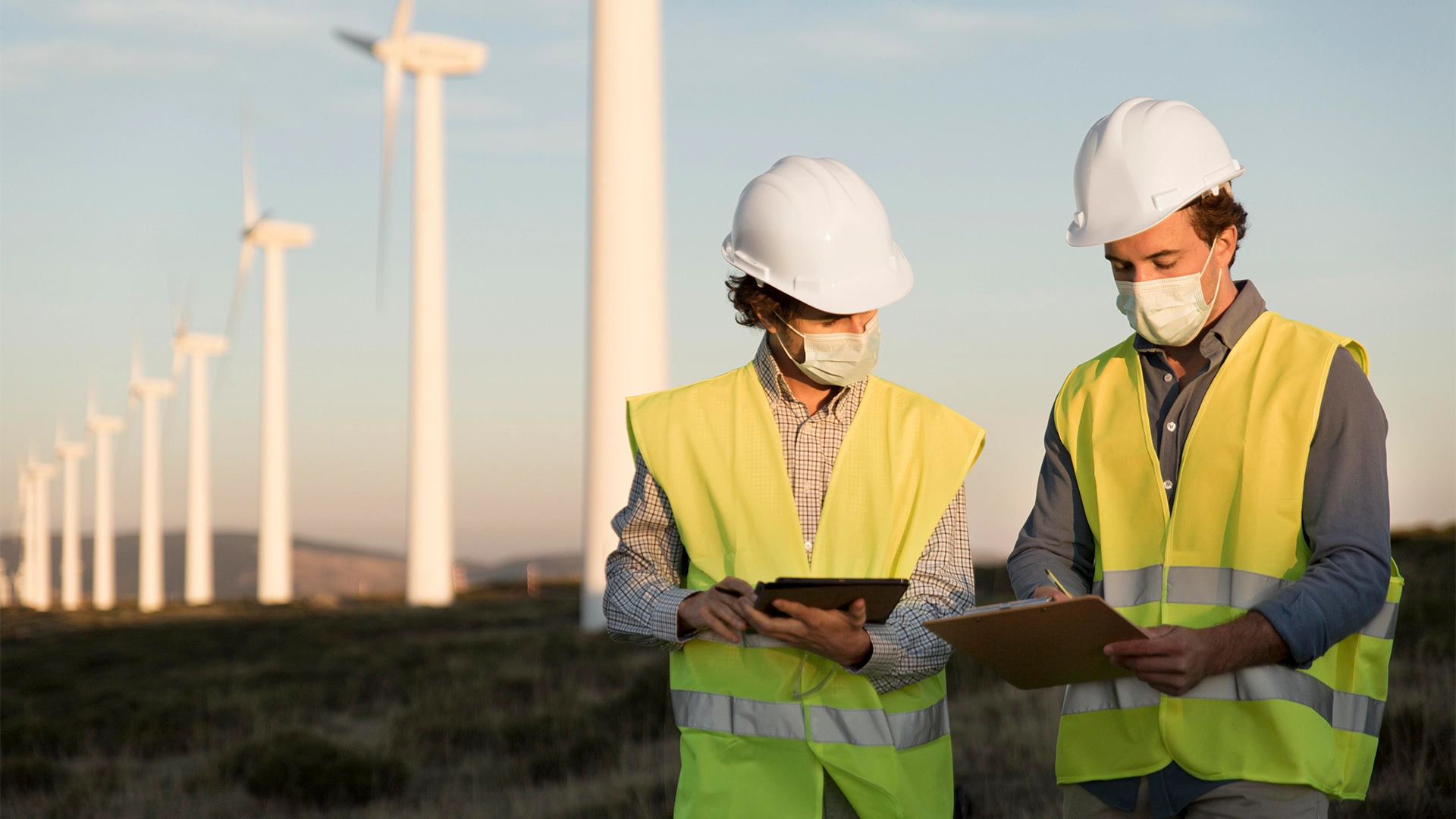Unlocking the Future: Maximising Efficiency in Renewable Power Construction
In today’s push for sustainable energy, renewable power construction is a driving force behind the global shift to cleaner resources. For developers, EPCs, utilities, and consultants, mastering efficiency in wind farm construction is crucial to overcoming challenges and capitalising on opportunities in this fast-growing sector. Streamlined processes and cost-effective strategies can significantly impact project success and investor returns.
This blog focuses on key methods to maximise efficiency in renewable power construction, highlighting best practices, cutting-edge technologies, and innovative project management techniques. By applying these insights, stakeholders can reduce timelines, lower costs, and minimise environmental impact—ensuring wind farm projects are delivered safely, on time, and with optimal performance.
Throughout this post, we will discuss the importance of effective project management, the integration of cutting-edge technology, and collaboration among diverse teams. These components are crucial in developing robust strategies that align with your goals. As you navigate the complexities of the renewable sector, recognising these factors can provide a competitive edge that ultimately benefits your bottom line.
At SBL Solutions, we pride ourselves on being a leading partner in the renewable energy space, delivering tailored solutions that maximise efficiency in every phase of construction. Our expertise in wind farm projects ensures that we are well-equipped to support your endeavours. For more information on how we can assist you, don’t hesitate to contact us. Together, let’s build a sustainable future.
What is Renewable Power Construction?

Renewable power construction involves building infrastructure that captures energy from sources like wind, solar, and hydro. This specialised process goes beyond erecting wind turbines or solar panels—it also includes integrating electrical systems and streamlining logistics to ensure projects run efficiently. By optimising every stage of the project lifecycle, from design to execution, renewable power construction focuses on using resources wisely and minimising waste, which is essential for project success and sustainability.
A key aspect of renewable power construction is wind farm infrastructure services, which encompass the civil works supporting turbines, electrical connections to the grid, and effective project management. These elements ensure wind farms operate safely, efficiently, and reliably. Companies like SBL Solutions prioritise these services to meet client expectations while advancing environmental goals. Maximising efficiency in renewable power construction not only reduces costs and improves energy output but also accelerates the transition to clean energy, benefiting developers, investors, and the planet alike.
It’s important to distinguish renewable power construction from traditional construction methods, as the former requires a unique set of skills and knowledge about renewable technologies and sustainability practices. Misconceptions often arise regarding the speed and cost of these projects, but with experienced partners like SBL Solutions, you can achieve timely and cost-effective outcomes without compromising on quality or safety. We leverage our deep industry knowledge to streamline processes, ensuring that every project is completed on time and within budget, even in the most challenging environments. For those looking to explore more about wind farm construction, feel free to check out our detailed hub on wind farm construction.
Weighing the Benefits and Challenges of Renewable Power Construction
In the journey towards maximising efficiency in renewable power construction, it’s essential to consider both the advantages and the drawbacks. Understanding these elements can help you make informed decisions that align with your project’s objectives.
Pros
Sustainable Energy Production
Renewable power construction facilitates the generation of clean energy, significantly reducing reliance on fossil fuels. This shift not only supports environmental sustainability but also aligns with global efforts to combat climate change.
Cost-Effectiveness Over Time
While initial investments can be high, renewable energy sources often result in lower operational costs. As technology advances, the cost of materials and installation continues to decrease, making long-term financial returns more attractive.
Job Creation and Economic Growth
Investing in renewable power construction can stimulate local economies by creating jobs in various sectors, from engineering to construction. This boost not only supports communities but also fosters a skilled workforce for future projects.
Technological Advancements
The renewable sector is at the forefront of innovation, leading to advancements in energy efficiency and performance. Embracing these technologies can enhance project outcomes and increase the viability of renewable energy solutions.
Enhanced Energy Security
By diversifying energy sources through renewable power construction, countries can reduce their dependency on imported fuels. This enhances national energy security and stabilises energy prices, benefiting both businesses and consumers.
Cons
High Initial Capital Costs
One of the main challenges of renewable power construction is the substantial upfront investment required. Although costs are declining, budgeting for large-scale installations can still be daunting for developers and investors.
Intermittency and Reliability Issues
Many renewable energy sources, such as solar and wind, are dependent on environmental conditions, leading to potential reliability issues. This intermittency can pose challenges for energy supply stability, especially during peak demand.
Regulatory and Permitting Hurdles
Navigating the complex landscape of regulations and permits can be time-consuming and costly. This bureaucratic process can delay project timelines and increase the overall expenditure on renewable power construction.
Infrastructure Limitations
Existing infrastructure may not always be suited for renewable power integration, requiring additional investment in upgrades and enhancements. This can further complicate project logistics and increase costs.
Environmental Impact Concerns
Despite the benefits, renewable power construction can still have negative environmental impacts, such as habitat disruption or resource depletion. Developers must carefully assess and mitigate these factors to maintain sustainability.
In conclusion, while renewable power construction offers numerous benefits, including sustainability and cost savings, it also presents challenges that cannot be overlooked. By carefully evaluating these pros and cons, you can make strategic decisions that not only maximise efficiency but also align with your project’s long-term goals.
Renewable Power Construction Tips Every Developer Should Know
Embarking on a renewable power construction project can be daunting, but with the right approach, you can maximise efficiency and ensure a successful outcome. Here are some key tips to guide you through the process and help you overcome common challenges.
Conduct Thorough Site Assessments
Before commencing any construction, it is crucial to perform comprehensive site assessments. This involves analysing geographical, environmental, and logistical factors that could impact your project. By understanding the site’s unique challenges, you can devise tailored strategies that enhance efficiency and reduce delays.
Engage Stakeholders Early
Involving all relevant stakeholders from the outset can streamline decision-making and improve project outcomes. Hold early discussions with local communities, regulatory bodies, and other partners to address concerns and foster collaboration. This proactive approach can help avoid costly setbacks later in the project.
Implement Robust Project Management Practices
Strong project management is vital for keeping your renewable power construction on track. Utilise project management tools and methodologies to monitor progress, manage resources, and ensure deadlines are met. Effective communication among team members will further enhance coordination and efficiency.
Focus on Quality Materials and Equipment
Investing in high-quality materials and equipment is essential for the longevity and efficiency of your renewable power construction. Ensure that all resources meet industry standards and are suited to the specific demands of your project. This upfront investment can save time and costs in the long run due to fewer repairs and replacements.
Prioritise Safety Compliance
Safety should never be compromised during construction. Establish a comprehensive safety plan that adheres to all regulations and best practices. Regular training sessions and safety audits can help maintain a culture of safety, protecting both workers and project integrity.
Utilise Technology and Innovation
Embrace the latest technologies in renewable power construction to enhance efficiency. From advanced project management software to innovative construction techniques, leveraging technology can streamline processes and reduce labour costs. Stay updated on industry trends to remain competitive.
Monitor and Evaluate Performance
After project completion, conduct a thorough evaluation of the construction process. Monitor key performance indicators to assess what worked well and identify areas for improvement. This reflective approach not only enhances future projects but also contributes to overall efficiency in renewable power construction.
By following these tips, you can navigate the complexities of renewable power construction more effectively, ensuring a productive and efficient project. Remember, a well-planned approach leads to successful outcomes and sustainable energy solutions.
Ready to Maximise Your Project's Efficiency?
Frequently Asked Questions about Maximising Efficiency in Renewable Power Construction
In this section, we’ve compiled some of the most common questions regarding renewable power construction and how to maximise efficiency in these projects. Whether you’re a project manager, contractor, or enthusiast, these insights will help clarify your queries.
What are the key factors that influence efficiency in renewable power construction?
Efficiency in renewable power construction is influenced by various factors, including project planning, resource management, and technology integration. Effective scheduling and high-quality materials can significantly reduce delays and waste, ensuring that projects stay on track and within budget.
How can technology improve the efficiency of renewable power construction?
Utilising advanced technologies such as Building Information Modelling (BIM) and drones can greatly enhance efficiency in construction. These tools facilitate better planning, real-time monitoring, and improved communication among teams, ultimately leading to faster project completion.
What role does project management play in maximising efficiency?
Strong project management is crucial for maximising efficiency in renewable power construction. A skilled project manager coordinates resources, oversees timelines, and ensures compliance with safety regulations, which helps mitigate risks and streamline processes.
How do logistics impact the efficiency of renewable power construction projects?
Logistics play a vital role in ensuring that materials and equipment are delivered on time and in the right condition. Efficient logistics management can minimise downtime and reduce costs, making it essential for the smooth execution of renewable power projects.
What are some best practices for ensuring safety compliance during renewable power construction?
Implementing comprehensive safety training and regular audits are best practices that can enhance compliance during construction. A strong safety culture not only protects workers but also contributes to the overall efficiency of the project by reducing incidents and delays.
How can collaboration with experienced partners improve construction outcomes?
Partnering with experienced companies like SBL Solutions can enhance construction outcomes by leveraging their industry knowledge and expertise. Collaborating with experts ensures access to innovative solutions and scalable resources, which can significantly improve project efficiency.
What challenges should I anticipate in renewable power construction?
Common challenges include regulatory compliance, environmental concerns, and logistical complexities. By anticipating these issues and planning accordingly, you can devise strategies to mitigate risks and enhance the overall efficiency of your renewable power construction projects.
We hope these FAQs have provided you with valuable insights into maximising efficiency in renewable power construction. If you have further questions or require assistance, feel free to reach out to us at SBL Solutions.
Bringing It All Together: The Future of Renewable Power Construction
By understanding the principles outlined in this post, you are better equipped to tackle the challenges of renewable power construction head-on. Whether you are a project manager, civil engineer, or stakeholder in the energy sector, the insights shared here can help you improve efficiency and effectiveness in your projects. We encourage you to apply this knowledge and take proactive steps towards optimising your renewable energy initiatives.
At SBL Solutions, we are committed to being your trusted partner in navigating the complexities of energy project construction. If you have any questions or would like further assistance in implementing these strategies, please don’t hesitate to contact us. Together, we can drive the future of renewable power construction forward.

